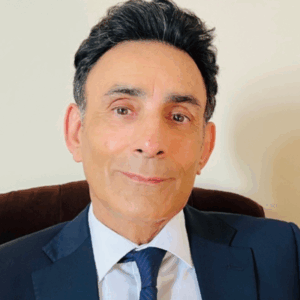

When mental health struggles and substance use team up, each problem fuels the other, making both harder to treat alone. At Lexington Addiction Center, we tackle that double bind head-on with dual diagnosis treatment in Lexington, KY, that integrates psychiatric care and addiction therapy from the start.
Our step-down outpatient ladder enables you to heal without pausing your life: start with Partial Hospitalization (PHP) for daily, doctor-directed support, transition to work-friendly Intensive Outpatient (IOP) as stability improves, and then maintain your gains in weekly Outpatient (OP) sessions.
Every level combines evidence-based counseling, medication management, and holistic wellness, allowing the mind and body to recover together.
“Dual diagnosis” describes the simultaneous presence of a mental-health disorder—such as depression, anxiety, PTSD, or bipolar disorder—and a substance-use disorder. Clinicians call these co-occurring disorders because the illnesses overlap, interact, and intensify one another.
National data show that nearly 50 percent of people seeking help for addiction also meet criteria for at least one psychiatric condition, underscoring why dual diagnosis and treatment are now the clinical gold standard.
Shared brain-chemistry pathways explain the high numbers: the same dopamine and serotonin circuits that lift mood or dull fear are hijacked by alcohol, opioids, stimulants, and sedatives. When medications or street drugs flood those pathways, they temporarily mask emotional pain, but they also rewire reward centers, setting the stage for dependence.
Without integrated dual diagnosis drug treatment, addressing only the mental illness or only the substance use leaves the other problem free to reignite relapse.
The relationship runs both ways. Unmanaged anxiety can make a late-night benzodiazepine feel like a lifeline; untreated depression can turn to alcohol or opioids for a fleeting bump of dopamine.
Over time, this “chemical coping” teaches the brain that relief equals intoxication, so cravings spike whenever panic or low mood returns.
On the flip side, chronic substance use alters neurotransmitter levels, depleting serotonin, ramping up stress hormones, and disrupting REM sleep, which deepens depressive episodes, aggravates anxiety, and re-triggers PTSD flashbacks.
This neurochemical loop creates a self-perpetuating cycle: emotional distress drives drug use, and drug use worsens distress.
Breaking the loop requires simultaneous therapy for both conditions, targeted medications for mood or trauma symptoms, plus evidence-based addiction counseling so each disorder stops feeding the other and long-term recovery can finally take hold.
At our dual diagnosis centers in Lexington, the clinical team is equipped to manage the full spectrum of psychiatric conditions that often intertwine with substance misuse:
By diagnosing these conditions alongside addiction, our team can match the right medications, trauma therapies, and coping-skill modules so both illnesses improve in tandem.
Your intake begins with a same-day, two-part assessment: a licensed therapist explores substance-use history while a psychiatric nurse practitioner evaluates mood, trauma, or attention issues.
Vital signs are taken, current medications logged, and any pressing withdrawal symptoms addressed.
Because overstimulation can spike anxiety, sessions unfold in a low-stimulus suite—soft lighting, sound-dampened walls, and private consult rooms. Before you leave, our staff will help you draft a personalized safety plan, which includes coping tools, crisis contacts, and after-hours telehealth options.
If the assessment flags uncontrolled hypertension, untreated seizures, or other red-flag conditions, we’ll arrange off-site medical clearance the same day so your clinical start isn’t delayed. You head home with a printed schedule for Week 1, direct phone numbers for your care team, and assurance that integrated help is already underway.

Set yourself free from the struggles of addiction and co-occurring mental health disorders. Reach out to our treatment team in Lexington, Kentucky today.
By offering this step-down continuum within a single dual diagnosis facility, we match support to your changing needs, providing intensive care when symptoms flare and lighter support when independence returns, so recovery feels achievable, sustainable, and fully integrated.

Our drug alcohol detox program gives you something the internet’s home-remedy tips never can: round-the-clock medical supervision from clinicians who’ve guided thousands through the roughest first days of sobriety.
We tailor evidence-based medications like buprenorphine for opioids or carefully titrated benzodiazepines for severe alcohol withdrawal to your exact physiology, so you stay safe while your body resets.

The partial hospitalization program (PHP) is our most structured outpatient option, offering full-day treatment four to five days a week. It’s a great fit for individuals transitioning out of detox or residential care who still require daily support to stay grounded and on track. You’ll have a packed schedule of therapy, groups, and wellness activities—all designed to help you stabilize and build momentum in early recovery.

Our intensive outpatient program (IOP) offers strong clinical support without the full-time commitment. You’ll attend therapy several times a week—often in the mornings or evenings—so you can continue working, going to school, or taking care of family. It’s ideal for those who want structure and accountability but are ready for more independence.

The outpatient program is our most flexible level of care, with sessions typically happening once or twice a week. It’s designed for those who’ve already made progress in their recovery but want continued guidance, check-ins, and a safe place to stay connected as life evolves. It’s ongoing support—on your terms.

Virtual outpatient care means you get the same licensed clinicians, evidence-based therapies, and medication support you would in the clinic, but from the comfort of your own home. With a secure video link and a decent internet connection, you can attend group therapy, meet with your counselor, and refill prescriptions without a commute.
For people living in Kentucky’s far-flung counties, telehealth closes the distance that so often stands between someone and treatment.

Our program, built by veterans for veterans, delivers evidence-based care alongside the camaraderie and mission-focused mindset that define effective veterans’ rehab. In short, rehab for veterans in Lexington, KY, must be custom-engineered to heal both battlefield wounds and the habits soldiers use to numb them.
Integrated dual diagnosis treatment works because it layers proven mental health therapies on top of evidence-based addiction care.
We start with Cognitive Behavioral Therapy (CBT) to reframe thoughts that spark both cravings and catastrophic thinking. Dialectical Behavior Therapy (DBT) follows, teaching emotion-regulation and distress-tolerance skills that stop relapse before it starts.
Trauma often hides beneath substance use, so we offer EMDR and brain spotting—rapid eye-movement and focal-gaze methods that process stuck memories without lengthy retelling. For clients whose PTSD or severe anxiety blocks progress, trauma-focused CBT blends exposure work with coping tools in a carefully paced format.
Motivation matters, too; Motivational Interviewing strengthens personal reasons for change, while Contingency Management provides immediate, tangible rewards for maintaining clean drug screens and attending therapy sessions.
Finally, whole-person healing rounds out care: yoga for nervous-system reset, nutrition coaching to balance blood sugar and mood, and mindfulness sessions that train attention away from rumination. This multimodal mix, delivered within a single, coordinated dual diagnosis facility, gives the brain, body, and behavior equal footing to recover together.
Pharmacology is a cornerstone of outpatient and inpatient dual diagnosis treatment facilities alike, but only when medications coordinate seamlessly with therapy.
Our psychiatric team begins by confirming or updating diagnoses, then selecting evidence-based agents: SSRIs or SNRIs to lift depression and quiet anxiety, mood stabilizers (lithium, lamotrigine) for bipolar swings, or non-addictive sleep aids like trazodone to reset circadian rhythms without new dependency risks.
For substance use itself, we integrate Medication-Assisted Treatment (MAT), buprenorphine or naltrexone for opioid dependence, acamprosate or extended-release naltrexone for alcohol cravings, always alongside counseling, never in isolation.
Doses are reviewed in daily PHP rounds and weekly IOP check-ins, with lab work monitoring liver function, thyroid panels, or medication levels as needed.
Crucially, therapists and prescribers meet every Friday to align pharmacological goals with session themes, ensuring side effects, breakthrough symptoms, or emerging trauma work informs rapid adjustments.
This tight feedback loop lets medication support therapy, yet not replace it, so both mental-health stability and sobriety strengthen in sync.
No one heals in a vacuum, especially when mental health and substance issues overlap. That’s why our dual diagnosis treatment model involves loved ones and peers from the start.
Weekly family-therapy sessions untangle miscommunication, set healthy boundaries, and teach relapse-warning signs so home becomes a relapse-prevention zone, not a trigger minefield.
Psycho-education workshops dive into topics like trauma’s impact on the brain or how medications work, giving relatives practical ways to encourage adherence and self-care.
On the peer side, clients join small, clinician-led groups that meet throughout PHP and IOP, then roll into an alumni network that hosts game nights, volunteer outings, and a private chat forum. Research shows that people who engage in both family and peer support are twice as likely to maintain sobriety and psychiatric stability a year post-treatment.
By weaving these human safety nets around each client, our program ensures that progress made inside the center is reinforced every evening at home and every weekend in the Lexington recovery community.
Integrated recovery isn’t a sprint; most people progress through 60-, 90-, or 120-day journeys that adapt to the intensity of symptoms and real-world responsibilities.
Phase one—PHP—typically runs four to six weeks of six-to-eight-hour days, giving daily psychiatric oversight time to fine-tune meds and stabilize mood.
Step two—IOP—lasts another four to eight weeks, tapering to three- or four-hour blocks so clients can resume work or classes while still attending trauma groups and weekly one-on-ones.
Finally, OP provides a glide path of one or two clinical hours per week for as long as clients—and their therapists—feel extra accountability adds value.
Factors that extend timelines include complex medication adjustments, unresolved trauma surfacing mid-treatment, or limited support at home.
Conversely, strong family involvement and a quick symptom response may shorten the need for higher-level care. Because our ladder is outpatient, each phase adapts around school pickups, job shifts, or caregiving duties, delivering hospital-grade therapy without the life-pausing confines of inpatient dual diagnosis treatment facilities.
Most major insurers, including Anthem Blue Cross Blue Shield, Aetna, Cigna, Humana, UnitedHealthcare, and Kentucky Medicaid, recognize that integrated care at reputable dual diagnosis centers is medically necessary.
Because our program is outpatient, costs are often lower than those at dual diagnosis inpatient treatment facilities; yet, benefits typically apply in the same way.
One quick phone call allows our admissions team to run a rapid, no-obligation verification, so you’ll know deductibles, co-pays, and any out-of-pocket maximums within an hour. If your policy leaves a gap, we offer sliding-scale fees and interest-free financing so cost never blocks treatment.
Curious how your coverage stacks up?
We’ll handle the paperwork while you focus on getting well.

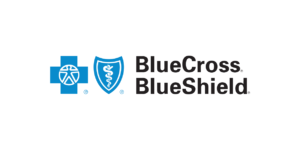
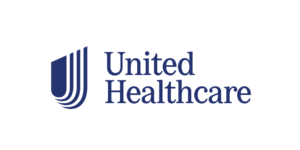

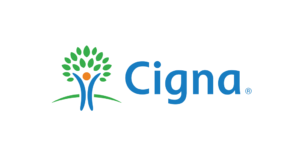
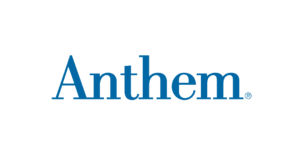
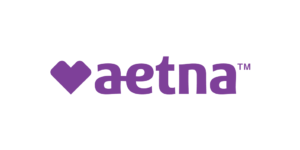
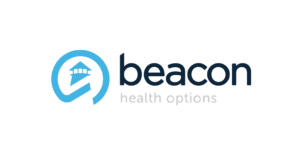
Many people assume that only a residential setting can handle the complexity of co-occurring disorders. Yet, modern outpatient models now deliver hospital-grade services without the price tag or life disruption of long-term stays.
At Lexington Addiction Center, our PHP–IOP–OP continuum offers daily psychiatry, lab monitoring, and trauma-informed groups that mirror what you’d find at top-tier dual diagnosis inpatient treatment facilities.
However, you still go home each night to practice new coping skills in the very environment that once triggered relapse.
Research indicates that outpatient programs, which provide at least nine clinical hours per week and integrate medication management, yield outcomes that closely match those of residential care, especially for clients who have stable housing, reliable transportation, and at least one supportive friend or family member.
The advantages are clear: you maintain employment, stay engaged with loved ones, and begin rebuilding routine in real time, instead of relearning life skills only after discharge. Because insurance carriers often classify high-intensity PHP as “inpatient equivalent,” they usually reimburse at rates similar to inpatient care while you save on room-and-board fees.
If unforeseen complications arise, severe withdrawal, emergent suicidality, or uncontrolled mania, we collaborate with local hospitals for a short stabilization stay and then reintegrate you back into outpatient work, ensuring continuity rather than starting over in a new system.
In short, our outpatient dual diagnosis facility delivers the structure of inpatient treatment with the flexibility and real-world exposure crucial for lasting recovery.
Relapse prevention is more than a list of “don’t do this” rules; it’s a trauma-sensitive blueprint that rewires the body’s threat response.
Many clients enter treatment carrying unresolved childhood neglect, combat memories, or intimate-partner violence experiences that prime the brain’s amygdala to fire at the slightest hint of danger or shame.
Traditional relapse-prevention plans often fail because they overlook this hyper-arousal; simply telling someone to attend meetings or call a sponsor doesn’t address the flashbacks that precede substance cravings. Our program adds a three-tier trauma lens:
When trauma activation is recognized as the first domino, clients no longer interpret cravings as moral failure but as a biological alarm that can be skillfully deactivated.
Integrated care is only a conversation away. Dual diagnosis treatment in Lexington, KY, at Lexington Addiction Center blends top-tier psychiatric care with proven addiction therapy so both mind and body heal together.
Recovery deepens when you’re surrounded by community. Graduates join our alumni program, which includes monthly game nights, volunteer days, and private chat forums that maintain high accountability.
Certified peer-recovery coaches stay in touch by phone or text during your first year out, offering real-time help when cravings or mood dips strike.
We’ll also connect you to the wider Lexington recovery community, including daily dual-focus 12-Step meetings (AA/NA with mental-health tracks) and twice-weekly SMART Recovery groups that blend cognitive tools with peer support.
These overlapping circles ensure you’re never more than a meeting, mentor, or friendly check-in away from the encouragement you need to stay balanced and substance-free.
Integrated care is closer than you think. Dual diagnosis treatment in Lexington, KY, at Lexington Addiction Center blends top-tier psychiatric support with evidence-based addiction therapy without forcing you to put life on hold.
Call 859-636-0779 now or submit the short form below for a same-day assessment and a step-by-step plan that rebuilds both mind and body. Your future starts with one brave call. Make it today.
If you’re addicted to heroin, the first step toward recovery can often feel like the hardest one, but it doesn’t have to be. At Lexington Addiction Center, we’ve made the process simple, supportive, and judgment-free. Whether you’re ready to quit or just starting to think about it, we’ll meet you where you are.
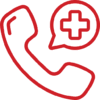
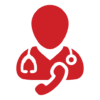


Choosing the right treatment center is crucial for anyone looking to overcome the intertwined challenges of mental health disorders and substance dependencies. At our dual diagnosis treatment in Lexington, KY we’re committed to providing a path to recovery that’s both comprehensive and personalized. Our expert team is ready to support you every step of the way from initial assessment to tailored therapy and beyond.
Trust our dual diagnosis treatment centers in Kentucky to help navigate your journey toward healing and wellness. Reach out today and together, let’s take the first step towards helping you.
Dual diagnosis refers to having both a mental health disorder (like anxiety, depression, PTSD, or bipolar disorder) and a substance use disorder at the same time. These co-occurring conditions frequently interact—emotional pain often drives substance use, and drug use worsens psychiatric symptoms. Nearly 50% of people with addiction also meet the criteria for at least one mental health condition, making integrated dual diagnosis treatment the gold standard for long-term recovery.
Mental health conditions often lead people to self-medicate with drugs or alcohol for short-term relief. Over time, this coping strategy rewires the brain and increases dependence. In turn, substance use depletes brain chemicals like serotonin and dopamine, worsening mood, anxiety, and trauma symptoms. Breaking the cycle requires simultaneous treatment of both the mental health and substance use issues.
We specialize in treating:
Our psychiatric and therapy teams work together to deliver personalized care that targets both diagnoses concurrently.
Your intake includes a two-part assessment—one with a licensed therapist and another with a psychiatric nurse practitioner. We’ll evaluate your mental health and substance use, take vitals, review medications, and draft a personalized safety plan. If medical concerns arise, we’ll coordinate same-day clearance. You’ll leave with a printed schedule, care team contacts, and a clear path forward.
We provide a step-down outpatient continuum:
Our evidence-based model includes:
Our psychiatry team prescribes evidence-based medications for depression, anxiety, PTSD, and bipolar disorder, along with MAT options for substance use. We monitor progress during PHP and IOP, with therapists and prescribers collaborating weekly to ensure treatment remains coordinated and effective.
Crucial. We offer weekly family therapy and psychoeducation to support boundary-setting and reduce conflict. Peer recovery groups and alumni activities provide connection, accountability, and mentorship. Clients engaged in both tend to sustain sobriety and emotional stability longer.
Most clients complete 60–120 days, progressing through PHP, IOP, and OP. Factors like medication changes, trauma history, and home support impact duration. Outpatient care allows you to heal without putting work, family, or school on pause.
Yes. We’re in-network with Anthem, Aetna, Cigna, Humana, UnitedHealthcare, and Kentucky Medicaid. Our admissions team can verify coverage in under an hour and offer sliding-scale fees or financing if needed.
Our outpatient model mirrors the intensity of inpatient care—with daily psychiatry, lab monitoring, and trauma therapy—while letting you live at home. It’s ideal for those with stable housing and a support system, and is often covered at similar rates as inpatient.
We go beyond standard relapse prevention by teaching:
Body awareness and nervous system regulation
Trauma reprocessing with EMDR and brainspotting
Trigger mapping and alternative response training
This approach helps rewire the body’s threat system and reduce cravings linked to trauma.
Our alumni program offers monthly events, peer recovery coaching, and access to dual-focus 12-Step and SMART Recovery groups. These community layers help reinforce progress and provide real-time support after formal treatment ends.
It’s simple:
Call 859-636-0779 or submit a secure online form
Complete a same-day tele-assessment
Begin PHP—often the next morning
Integrated care starts with one call. We’ll walk with you from day one through full recovery.
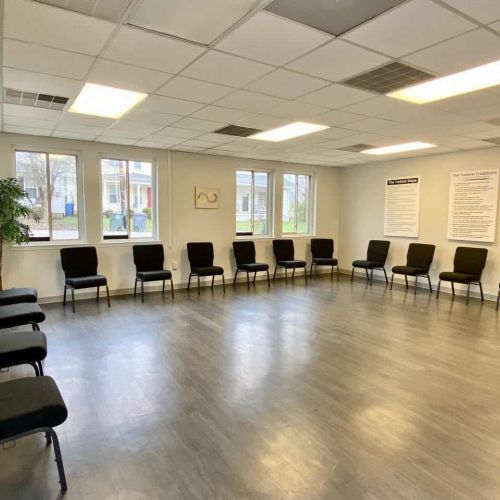





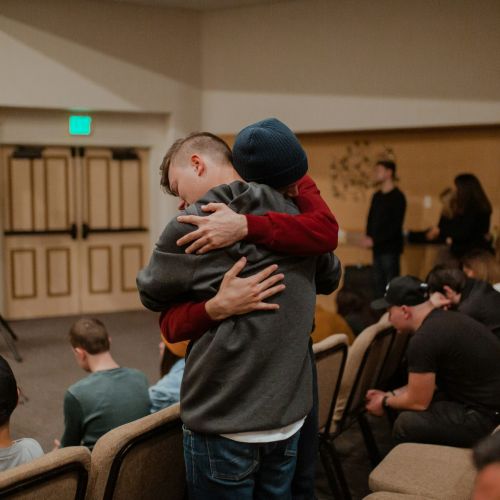

Get Family Support Now
We understand addiction affects the whole family. Our comprehensive family program helps rebuild trust and restore relationships.
Weekly Family Therapy Sessions
Educational Workshops
Support Groups
Communication Skills Training

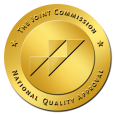



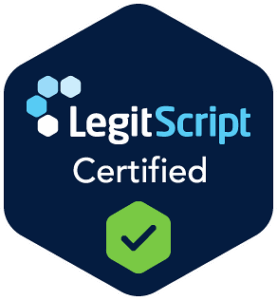
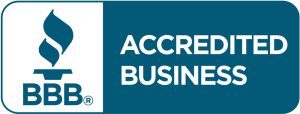
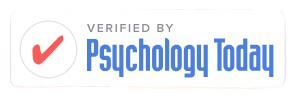


Robinson, L., Smith, M. A., & Segal, J. (2024, August 21). Dual diagnosis: Substance abuse and mental health. HelpGuide.org. https://www.helpguide.org/mental-health/addiction/substance-abuse-and-mental-health HelpGuide.org
U.S. National Library of Medicine. (2023, December 20). Dual diagnosis. MedlinePlus. https://medlineplus.gov/dualdiagnosis.html MedlinePlus
Greenstein, L. (2017, October 4). Understanding dual diagnosis. NAMI (National Alliance on Mental Illness). https://www.nami.org/Blogs/NAMI-Blog/October-2017/Understanding-Dual-Diagnosis

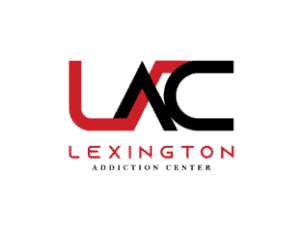
Addiction and co-occurring disorders don’t have to control your life. Lexington Addiction Center is waiting with open arms to give you the tools necessary for lasting change. Reach out to us today to learn more.